(Spoiler Alert - This post contains parts of all the six episodes of Season 1.)
The new glossy costume drama, Downton Abbey, is a contemporary take on life upstairs and downstairs. Set in Edwardian times, the events begin in 1912 and finish right at the onset of the First World War.
In the series, we follow the lives of the aristocratic Crawley family and their servants. With a splendid cast – including the impressive Maggie Smith as the Dowager Countess and the extremely likeable Hugh Bonneville as the Earl of Grantham – the series is a captivating take on life back in the days.
Maggie Smith fails to disappoint as the Dowager Countess.
Lord Grantham (Hugh Bonneville) is a picture of benevolence and kindness.
There are several interesting references to the changing world; the Titanic has just sunk, the suffragette movement is up and running, and people are just getting used to electric lighting, driving “motors” and using telephones. While the series is a little slow-paced from the beginning, it holds your attention with its intriguing mysteries and humorous moments.
The Crawleys reading about the Titanic in the newspaper: Butler Mr Carson (Jim Carter), Lady Edith (Laura Carmichael), Lord Grantham and Lady Mary (Michelle Dockery).
But what really took my attention was the fact that the series has got plenty of inspiration from Jane Austen’s classics. The first instance of an Austen-inspired moment is when a distant cousin, Matthew Crawley, arrives.
Matthew Crawley (Dan Stevens – Edward Ferrars in the 2008 Sense and Sensibility) with his mother Mrs Crawley (Penelope Winton).
With no son to be heir of the estate, Matthew as the third cousin and closest male relative is to inherit the estate after the passing of the Earl. As Matthew arrives at Downton Abbey, everyone has their doubts of him, but there is strong pressure on the eldest daughter, Mary (above right), to marry him to secure the future of the estate. Doesn’t this remind of you of Mr Collins’ arrival at Longbourn?
Initially, Lady Mary is unwilling to marry Matthew, as she finds him too common. As she gets to know him better over time, she begins to fall in love with him…
Matthew reminds her of some of the choicest remarks that she made to him when he first arrived at Downton…
…and she goes on to say, “you must pay no attention to the things I said”. Déjà-vu in Pride and Prejudice?
Mary tells her mother about Matthew’s proposal and confesses to her that she loves Matthew, saying “I think I may have loved him for much longer than I knew!” Think Elizabeth Bennet again…
Then, the story turns into Persuasion. Lady Mary’s aunt, Lady Rosamund (Samantha Bond – Maria Bertram in Mansfield Park 1983) persuades her to turn down Matthew’s offer.
Later, Mary’s sister, Lady Edith, vindictively says to Mary – in an analogy to Jane Austen in Persuasion - “I believe that she who loves last, loves the longest”. This reminds me of Anne Elliott, talking about her love for Capt Wentworth...
To my disappointment, the events in this Austenesque drama were left open and have yet to unfold. I’m left looking forward to the new season in 2011 to find out if Mary and Matthew can overcome their pride and be persuaded to marry.
Watch this space!
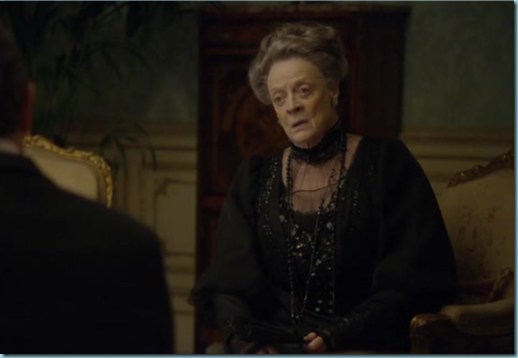

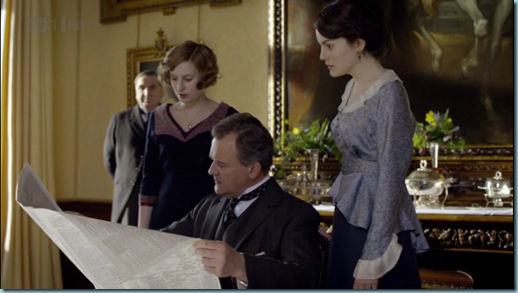
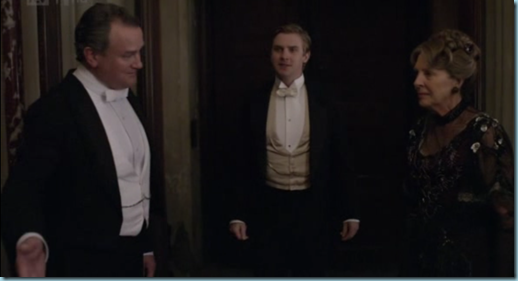

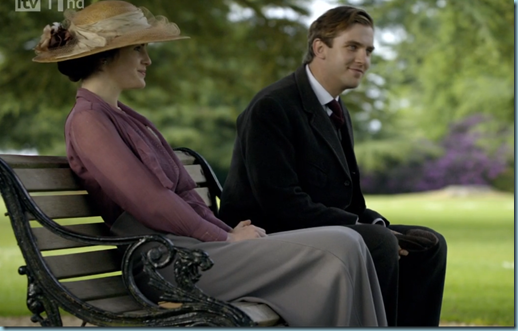
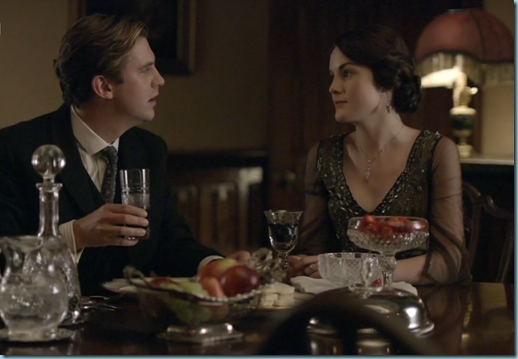
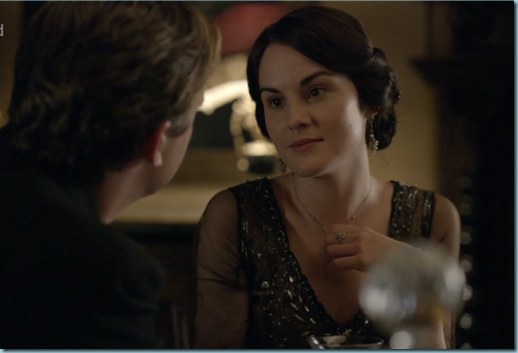
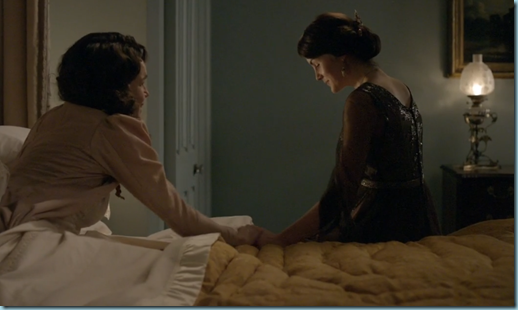

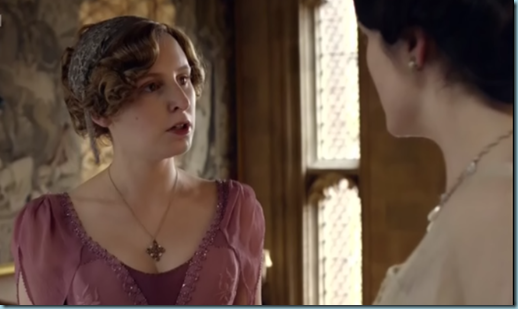
I have yet to see Downton Abbey, but from all I have read and heard of it from friends who have seen it, I look forward to it. I'll be on the lookout for your Austen references as I watch. Thanks for sharing them.
ReplyDeleteJust one comment, however, concerning the 'direct quote' of Anne in Persuasion. You are incorrect, at least regarding the book that Jane Austen wrote. What Anne Elliot says in the book is "All the privilege I claim for my own sex (it is not a very enviable one: you need not covet it), is that of loving longest, when existence or when hope is gone!" Perhaps your quotation was from a film adaptation, that I cannot say. But it is not a direct quote from the book. (Your analogy, however, seems well applied.)
You are correct - it is not a word-to-word quote, but more of an analogy. I will change the wording!
ReplyDeleteAnna, I so look forward to seeing this, especially after reading your very informative post!
ReplyDeleteThanks for visiting,Jean. Hope you get to see it soon!
ReplyDeleteThank you so much for the lovely screencaps and Austen connections! I'll be watching for them. A spoiler alert toward the end of the post might be helpful though for those of us on the "other side of the pond" who have to wait a few more weeks to discover that some resolutions will be put off until next season.
ReplyDeleteSorry, Kelly! I was assuming that most of the readers will have seen the series by now... hope I haven't given away too much!!
ReplyDeleteAnna, HAPPY NEW YEAR.
ReplyDeleteAll the best,
Tony
It's no problem, Anna! Seems like not only is the program being shown around the world at different times, we all may be getting different versions. Who knows with what cliffhanger PBS may leave us.
ReplyDeleteThank you so much for your nice comment on my (sadly neglected) blog! Perhaps Downton Abbey will inspire a new costuming project, since I love the fashions of the 1910s almost as much as the 1810s.
Just thought I'd add that the quote in DA is actually "she who LAUGHS last, LAUGHS the longest2
ReplyDeleteKinda changes the whole meaning!